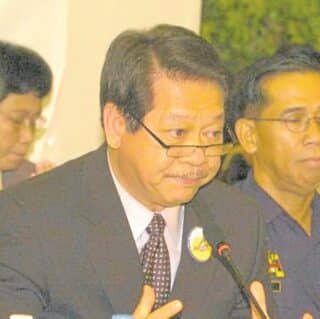The Aquino administration has certainly learned from its rookie mistakes. Unlike the first presidential issuances that slipped out of Malacañang two years ago, the new and much-anticipated executive order instituting reforms in the mining sector is strategically sound, internally coherent and (by all accounts) the product of many hours of consultation. But it is not beyond criticism; in particular, it insists on a flawed understanding of the relationship between the national government and the various local governments with a stake in mining.
Some critics of Executive Order 79 have been scathing and dismissive; they see nothing positive in it. Fr. Edwin Gariguez, who runs the Catholic Bishops’ Conference of the Philippines’ National Secretariat for Social Action, called the order a “consuelo de bobo” (a fool’s consolation). “This is not the answer to the problem, and this is not the reform we’re expecting,” he said.
But the bishops whom the good priest represents expected nothing less than a complete moratorium on all ongoing mining operations. In an ideal world, this absolute line must be the answer. But in a fallen world, fraught with many compromises—between development and the environment, between the environment and poverty, between technology and sustainability—we must learn to follow the middle way. The EO obviously seeks to strike what the administration sees as the right balance between stopping all mining activities (see Section 4, which forbids all new mineral agreements until Congress resolves the revenue-sharing scheme—not an easy proposition) and drawing more benefits out of the sector (see Section 6, which requires competitive public bidding for new areas for mining.)
Other critics have gone further, declining to accept the provisions of the new order even at face value. Gabriela party-list Rep. Luzviminda Ilagan, for instance, argued: “The mining EO does not intend to change the current expansive spread of mining operations in the country. It does not intend to protect communities or make mining companies liable for the damage that has been inflicted on our resources.”
In fact, EO 79 explicitly widens the scope of “Areas Closed to Mining Applications” in the order’s Section 1: The number of “no-go” zones, in the administration’s clever phrase, has greatly increased, because the scope now includes not only previously protected areas but also prime agricultural lands, tourism development areas and “other critical areas, island ecosystems, and impact areas of mining as determined by current and existing mapping technologies.” We have heard environmentalists welcome this provision, precisely because it altered the previous paradigm: Under EO 79, the default position, as it were, is to declare an area off-limits to mining.
(The order also stipulates “full enforcement of environmental standards” and mandates a review of existing mining operations “to ensure compliance with environmental standards.”)
But it is the EO’s deliberate subordination of local governments to national policy that strikes us as most problematic. Section 12 requires that local government “powers and functions … conform to the regulations, decisions, and policies already promulgated … by the National Government.” We think this is altogether wrong, because it is the local governments who have a much better appreciation of the actual impact of mining activity “on the ground.”
In his first briefing to explain the new EO, Environment Secretary Ramon Paje justified the administration’s understanding of national-local dynamics in terms of containing the damage from mining permits issued by local governments.
But Gariguez posits an even more likely scenario: “There’s a problem there. In effect, the government will have to twist the arms of the local government units for them to follow national laws. This is worrisome because this takes away their voice opposing mining.”
The administration’s insistence that local action follow national policy no matter what seems consistent with a theory of national rather than federal authority, but the consequences of theory can have a very real impact. By effectively removing the local governments’ capacity to say “no-go,” the EO undermines its own bold promises.


